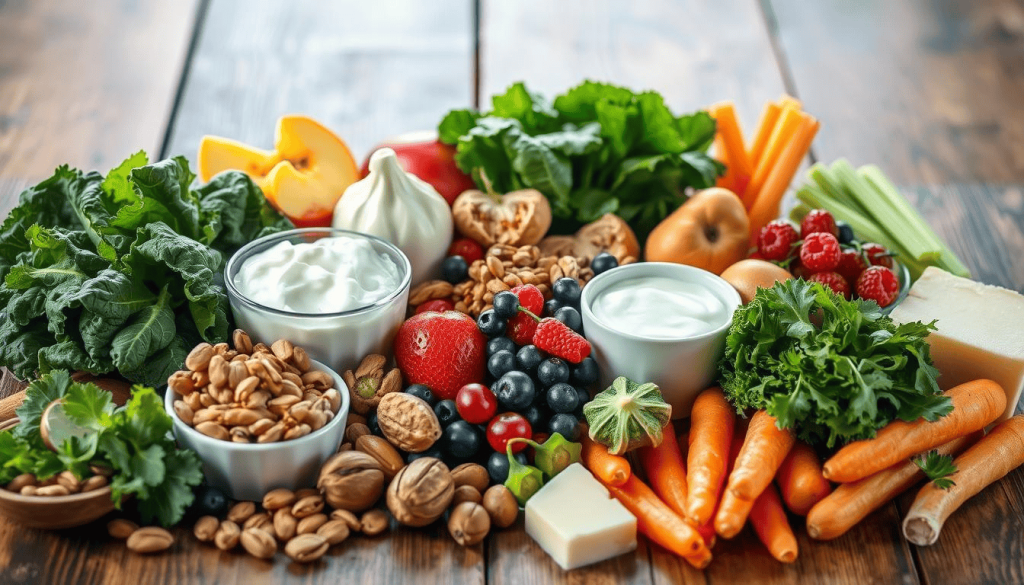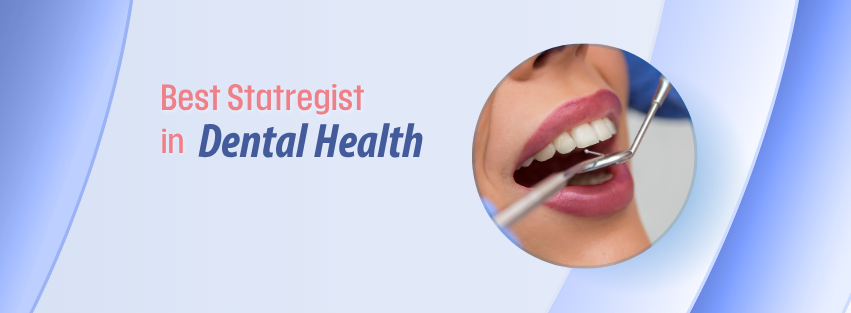
I’ve dealt with dental problems before and know how tough they can be. But, our bodies can heal and grow back teeth naturally. It all begins with the foods we eat.
I used to think cavities were unavoidable. But learning about tooth decay and healing has shown me we can control our tooth health. We have more power than we think.
Key Takeaways:
- Our bodies can naturally heal minor cavities when provided with the right nutrients.
- Saliva plays a critical role in rebuilding lost tooth structure in the early stages of tooth decay.
- Foods high in calcium, vitamin D, vitamin K2, magnesium, and phosphorus can help prevent and reverse cavities.
- A balanced diet, good oral hygiene, and regular dental visits are key for natural healing.
- Xylitol, a natural sweetener, helps dental health by stopping bacteria that cause cavities.
Understanding Tooth Decay and Natural Healing Process:
Keeping teeth healthy is more than just brushing and flossing. We must learn about tooth regeneration to fix and prevent cavities. Let’s look at how cavities form and how our bodies can heal them with the right nutrition.
How Cavities Form and Progress?
Cavities start with plaque buildup on teeth. This plaque is a mix of harmful bacteria and food bits. When these bacteria eat carbs, they make acids that damage teeth, creating cavities. The process of cavity formation is a cycle. As teeth weaken, more plaque forms, causing more acid and damage. This cycle gets worse until it reaches the tooth’s core.
The Role of Saliva in Tooth Remineralization:
Saliva is key in healing teeth. It has calcium, magnesium, and phosphorus for enamel repair and tooth decay prevention. Saliva neutralizes acids, letting these minerals fix tooth damage through remineralization.
Natural Healing Mechanisms of Teeth:
The body can naturally repair cavities and keep teeth healthy. With the right nutrients, it can fix damaged enamel and stop tooth decay. By supporting these healing processes, we can keep our teeth strong and healthy for life.
“The key to a healthy, vibrant smile lies in understanding and nurturing the body’s natural ability to heal and regenerate teeth.”
What Foods Are Good for Regenerating Teeth?
Our diet greatly affects our teeth’s health. Some foods can help repair and strengthen our teeth. Let’s look at the best what foods are good for regenerating teeth?, remineralization foods, and dental health nutrition for our teeth.
Dairy, leafy greens, and almonds are full of calcium. They help build strong enamel. Vitamin D in fatty fish and egg yolks helps our body use calcium better.
Vitamin K2 in natto, cheeses, and organ meats is also key. It makes sure calcium goes to our teeth and bones, not soft tissues. Foods rich in magnesium, like nuts and whole grains, work well with calcium and phosphorus for our teeth.
Foods with xylitol, like sugar-free gum, are good for our teeth too. Xylitol stops bad bacteria in the mouth, helping prevent cavities and support tooth repair.
“Proper nutrition, along with good oral hygiene, is the key to maintaining healthy teeth and gums,” says Dr. Adatrow, a dental specialist with over 18 years of experience.
Eating these what foods are good for regenerating teeth?, remineralization foods, and dental health nutrition helps our teeth heal and grow. This reduces the chance of cavities and other dental problems.
Remineralization Foods:
A vibrant assortment of nutrient-rich foods beneficial for tooth remineralization, including fresh green leafy vegetables, creamy avocados, slices of cheese, crunchy almonds, colorful berries, and whole grains, artistically arranged on a rustic wooden table with soft natural lighting highlighting their textures and colors.
A diet rich in nutrients and good oral care are the basics for a healthy smile.
Essential Nutrients for Dental Health:
Keeping your teeth strong is more than just brushing and flossing. What you eat is key to your dental health. Certain vitamins and minerals are vital for tooth growth and strength.
Calcium and Vitamin D Synergy:
Calcium is essential for strong bones and teeth. But vitamin D is just as important. It helps move calcium to your teeth and bones. This team-up between calcium and vitamin D is vital for good dental health.
The Power of Vitamin K2:
Vitamin K2 works with vitamin D3 to guide calcium to the right places. It helps teeth and bones get the calcium they need. This prevents calcium from causing harm in soft tissues.
Magnesium and Phosphorus Benefits:
Magnesium is key for dental health. It helps your body use calcium and vitamin D well. It also aids in the natural repair of teeth through saliva.
Phosphorus is a major part of tooth enamel. It helps fight tooth decay.Eating foods rich in these vitamins for tooth growth and minerals for strong teeth supports your dental health nutrition. It helps your teeth heal naturally.
“Proper nutrition is the foundation for healthy teeth and gums. Prioritizing these essential vitamins and minerals can make a significant difference in your overall dental well-being.”
Mineral-Rich Foods for Tooth Remineralization:
Keeping our teeth strong and healthy is key. Eating remineralization foods helps repair teeth naturally. Let’s look at the best minerals for strong teeth and how to add them to our diet.
Calcium is vital for tooth health. It makes tooth enamel strong. You can find calcium in dairy, fish with bones, leafy greens, and fortified foods. It’s also important to eat foods rich in vitamin D to help absorb calcium.
Vitamin K2 is another important mineral. You can find it in fermented foods like natto, aged cheeses, and organ meats. It helps direct calcium to our teeth and bones.
- Magnesium-rich foods like nuts, seeds, greens, whole grains, and avocados help with natural tooth repair.
- Phosphorus, found in meats, poultry, seafood, nuts, seeds, and dairy, works with calcium to strengthen teeth.
Eating these mineral-rich foods daily helps our teeth remineralize naturally. This leads to a brighter, healthier smile.
Mineral Rich Foods:
A vibrant arrangement of mineral-rich foods on a wooden table, featuring dark leafy greens like kale and spinach, bright orange sweet potatoes, a variety of nuts such as almonds and walnuts, fresh fruits like strawberries and kiwis, and small bowls of seeds like sesame and chia, all illuminated by soft natural light.
“Remineralization and stopping demineralization are interrelated and require constant monitoring and lifestyle changes.”
Vitamin-Dense Foods That Support Dental Health:
Keeping your teeth strong needs a diet full of vitamins and minerals. There are many foods, from fish to plants, that help your teeth grow and repair. These foods are packed with nutrients that support your dental health.
Fish and Seafood Options:
Fatty fish like salmon, sardines, and oysters are great for vitamin D. Vitamin D helps your body absorb calcium, which is key for strong teeth. These seafood also have omega-3s and calcium, helping your teeth stay healthy.
Plant-Based Sources:
Leafy greens like kale, collards, and spinach are full of vitamins K and C. These vitamins help your bones and gums stay strong. Broccoli, nuts, seeds, and fortified plant milk like almond milk also offer calcium and other nutrients for your teeth.
Dairy Alternatives:
Even without dairy, you can get the calcium your teeth need. Tofu, leafy greens, and fortified almond milk are good choices. Mushrooms that have been exposed to UV light are also a surprising source of vitamin D, helping your bones and teeth.
FAQ’s answered:
What foods are good for regenerating teeth?
Foods that help prevent and reverse cavities are rich in calcium, vitamin D, and vitamin K2. They also have magnesium, phosphorus, and xylitol. These nutrients support the body’s natural healing processes for teeth.
How do cavities form and progress?
Cavities form through a complex process. It starts with plaque formation and bacterial feeding. Acid secretion and tooth structure erosion follow.
Plaque builds up when harmful bacteria and food particles coat the tooth surface. The acids from plaque’s feeding on carbohydrates wear away dental structure.
What is the role of saliva in tooth remineralization?
Saliva is vital for naturally remineralizing teeth. It contains essential minerals like calcium, magnesium, and phosphorus. The body’s ability to heal cavities depends on maintaining a healthy oral microbiome and providing necessary nutrients through diet.
What are the essential nutrients for dental health?
The essential nutrients for dental health include calcium, vitamin D, and vitamin K2. They also include magnesium and phosphorus. These nutrients work together to strengthen bones and teeth, transport calcium, and support the natural remineralization process.
What are some mineral-rich foods for tooth remineralization?
Calcium-rich foods include dairy, leafy greens, and almonds. Vitamin D sources are fatty fish and egg yolks. Vitamin K2 can be found in natto, certain cheeses, and organ meats.
Magnesium-rich foods include nuts, seeds, and whole grains. Phosphorus sources include meats, eggs, and some dairy products.
What vitamin-dense foods support dental health?
Fish and seafood options rich in vitamins for dental health include salmon, sardines, and oysters. They provide vitamin D, calcium, and omega-3 fatty acids. Plant-based sources include leafy greens, broccoli, nuts, seeds, and fortified plant milk.
